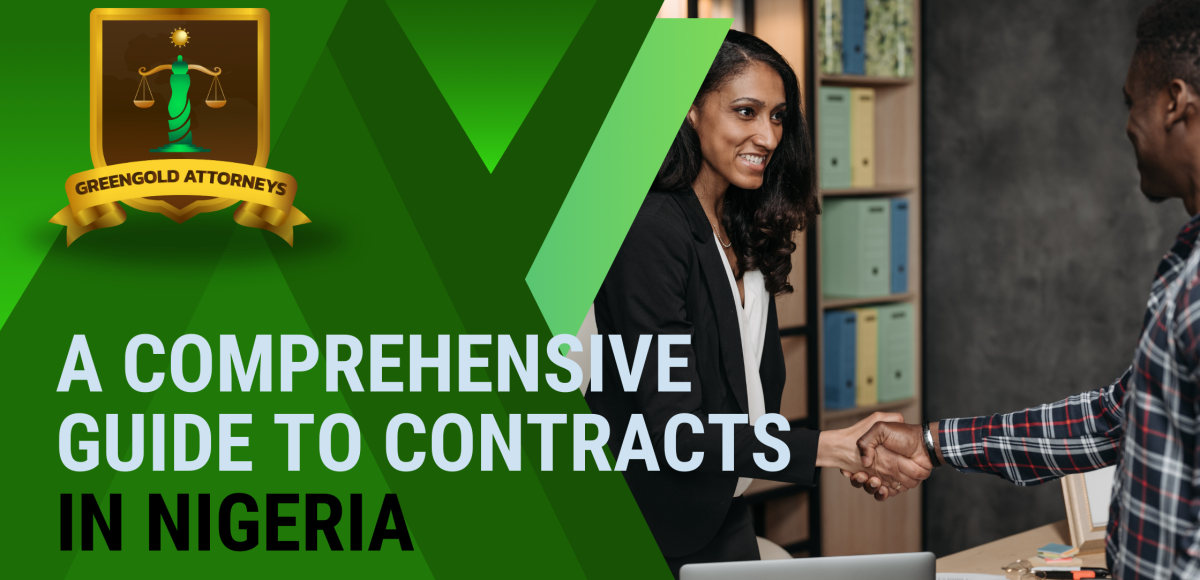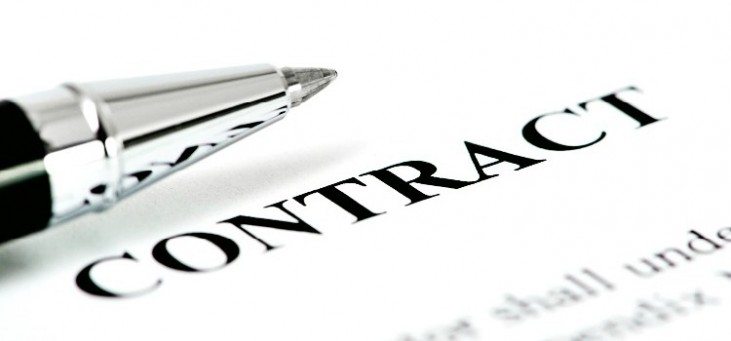
A Comprehensive Guide to Contracts in Nigeria
As an owner of one of the best corporate law firms in Abuja, I can tell you that contracts are the foundation of most business transactions and relationships. A well-drafted contract ensures clarity, protects the interests of all parties, and serves as a reference point for resolving disputes.
In Nigeria, especially when dealing with complex agreements, consulting with one of the best law firms in Abuja can help you navigate the statutory and common law requirements, making it easy to understand the principles involved in contract formation.
Key Elements of a Valid Contract
For a contract to be legally binding in Nigeria, it must contain the following elements:
- Offer and Acceptance: One party must make a specific offer and the other must clearly accept it. Ambiguities in this stage can lead to misunderstandings and potential legal issues.
- Intention to Create Legal Relations: Both parties must intend for the agreement to have legal significance and be binding on them. This intention is generally implied in commercial transactions.
- Consideration: Each party must receive a benefit or suffer a detriment as part of the agreement. For example, in a contract for the sale of goods, the buyer provides money while the seller provides the goods.
- Capacity: The parties must be of sound mind and have the legal ability to enter into a contract. Minors and individuals with certain mental disabilities lack this capacity.
- Legality of Purpose: The contract must involve legitimate activities. Contracts for illegal activities, such as fraud, are void and unenforceable.
For a more in-depth look at the key elements of a binding contract in Nigeria, visit this link to read more.
What to Look Out for in Contracts
Consulting with one of the best law firms in Abuja can provide the expertise needed to navigate complex contracts and protect your interests. When entering into a contract, it is crucial to carefully review and understand each term to avoid misunderstandings and legal pitfalls. Here are some critical areas to pay attention to:
- Scope of Work and Deliverables: Ensure that the contract clearly defines the tasks, services, or products that each party is expected to deliver. Ambiguities here can lead to disagreements, as we often see in most cases Greengold Attorneys handles.
- Payment Terms: Confirm the payment amounts, schedule, and methods. This includes details like upfront payments, instalments, and late fees, if applicable.
- Duration and Termination: Understand the contract’s duration and the conditions under which either party can terminate the agreement. Look for terms around early termination and any associated penalties.
- Confidentiality and Non-Disclosure Clauses: These clauses protect sensitive information. Be clear about what information is confidential and how long the confidentiality obligation lasts.
- Liability and Indemnification: Review clauses related to liability and indemnification to understand the risks involved. Be cautious of terms that unfairly place the burden of liability on one party.
- Dispute Resolution Mechanisms: It’s beneficial to include a clause outlining how disputes will be resolved, whether through mediation, arbitration, or litigation. Arbitration is often preferred in Nigeria for commercial disputes due to its efficiency.
- Governing Law and Jurisdiction: Verify which country’s laws govern the contract and where disputes will be resolved. In Nigeria, contracts typically specify Nigerian law as the governing law.

Benefits of Having a Contract
Contracts offer numerous benefits for both individuals and businesses, including:
- Clarity and Expectations: A contract spells out the roles, responsibilities, and expectations of each party, reducing the likelihood of misunderstandings.
- Legal Protection: Contracts provide a legally enforceable framework, protecting parties’ rights and interests. They serve as evidence in court if a dispute arises.
- Risk Mitigation: Contracts help prevent disputes and reduce the risk of losses from non-performance or breach by addressing potential issues upfront.
- Accountability: Contracts help prevent disputes and reduce the risk of losses from non-performance or breach by addressing potential issues upfront.
- Flexibility: Contracts can be tailored to suit specific needs and can include various terms to address contingencies, offering flexibility in structuring agreements.
In conclusion, having a well-drafted contract is essential for ensuring clarity, protecting your interests, and fostering trust in business relationships. Consulting with one of the best law firms in Abuja can provide invaluable expertise in this process. By understanding the key elements and what to look out for, you can navigate contracts confidently and minimise the risk of disputes. Whether you’re drafting a contract or reviewing one, taking the time to ensure every detail aligns with your objectives can make a significant difference and save you loads of time that would have been spent in disputes.
If you’re ready to take the next step and safeguard your business interests, speak to an attorney near you by clicking the link below. Professional guidance can provide you with the confidence that your contract meets legal standards and protects your rights.
Remember to check back soon for the second part of this article, where we’ll explore even more insights into drafting contracts, tips, and a guide to managing legal agreements in Nigeria.

